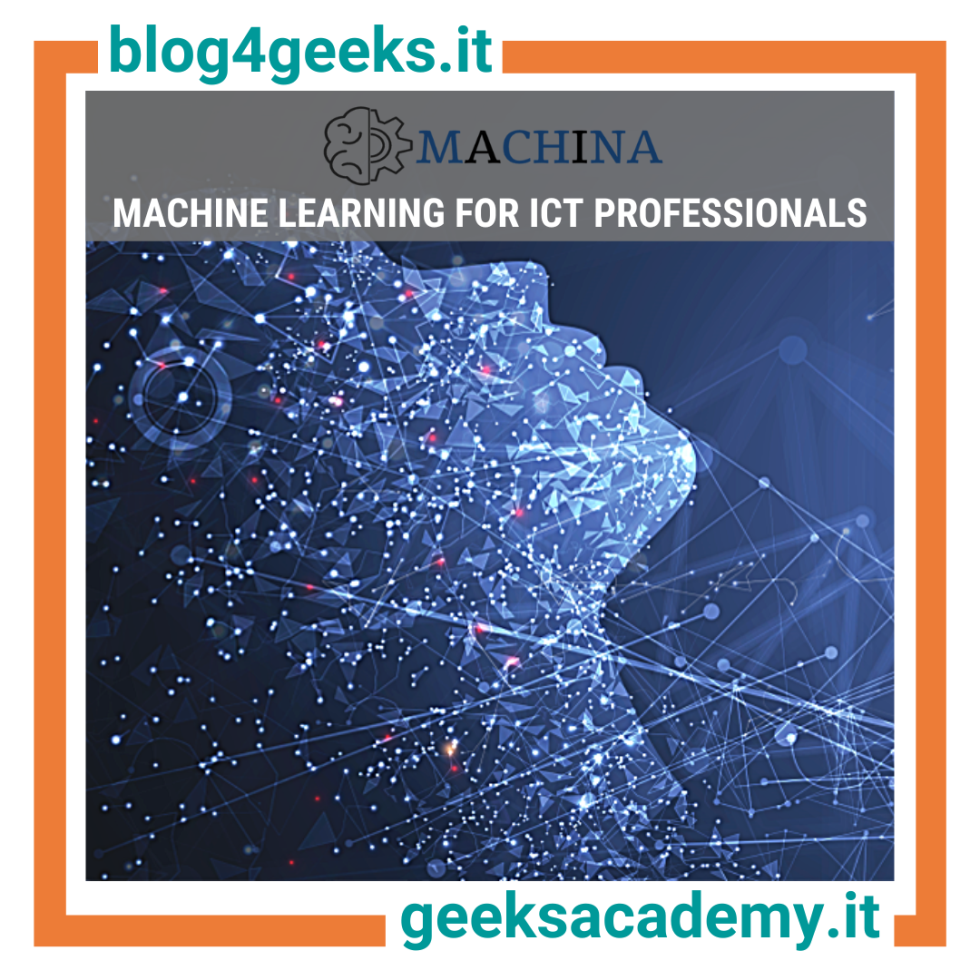
Discover Geeks Academy’s articles on: Blockchain, Coding, Cybersecurity, Cloud, Big Data, Artificial Intelligence, Gaming, Digital Innovation
Artificial Intelligence (AI) is one of the fastest-growing technological areas, causing so much interest either from companies and consumers in recent years. The AI market has been valued $327 billion in 2021. One in two companies believe AI will improve remote working and almost 90% of those companies are aware that AI will benefit their business. Numbers don't lie and, according to new generations, AI will be the digital area that will impact our lives the most in the next decade. This is why the European Erasmus+ program has decided to strongly focus on raising artificial intelligence’s awareness. In fact, Erasmus has funded a project called MACHINA, which pertains to a specific subset of AI known as Machine Learning.
Machine Learning
Machine Learning (ML) is a subset of Artificial Intelligence. In computer science, rather than relying on traditional programming, a machine is set up to learn from data without the need of any kind of instruction. In Italy, one third of AI projects are meant to extract and analyze data.
Thanks to the application of learning algorithms, ML has been constantly spreading in many areas and sectors: voice recognition, astronomy, vehicle driving automation, finance, engineering. These are just some of the areas which invested the most in the Machine Learning field. Today, the high amount of data created requires more automation and much more ICT (Information and Communications Technology) professional profiles in AI and ML.
In Italy, the value of the AI market has gone from 85 million Euros in 2018 to 380 million Euros in 2022. 70% of firms worldwide already use Machine Learning and at the moment those who mostly apply learning algorithms are companies in fraud and cybersecurity sectors. The rapid expansion of ML, especially in data-driven companies, immediately requires qualified ICT profiles in the EU. While the demand for ML skills is steadily growing, employers are facing a shortage of suitable candidates, leaving thousands of vacant positions (approximately 769,000), threatening productivity, efficiency and future growth.

MACHINA project
MACHINA is an Erasmus project born in 2020. The initiative has been undertaken by a consortium of five European organizations, supervised by the University of Lyon:
- UCBL - Lyon, France
- Geeks Academy - Rome, Italy
- L3S - Hannover, Germany
- Exelia - Athens, Greece
- ANC - Bucharest, Romania
MACHINA aims to address the skills mismatch in the Machine Learning field by creating an open training course suitable for beginners. The creation of new specialized profiles requires specific hard skills as well as soft skills; the digital transformation and the development of the ML sector are already in progress. Strengthening the ICT offering is therefore essential for the European ICT workforce to acquire and develop a mix of technical and non-technical ML. For this purpose, MACHINA has made available Open Educational Resources (OER), guaranteeing the possibility for anyone to access academic material. Geeks Academy – which has been operating since 2016 in the fields of Artificial Intelligence & Big Data Analytics, Blockchain & Coding, Cybersecurity & Cloud, Metaverse Development and Virtual Reality – as a specialized school in the areas of ML and AI brings substantial experience and competence in order to design and deliver professional training courses, covering the entire spectrum of Machine Learning technical and non-technical skills.
The project is a strategic international partnership which aims to strengthen key digital skills for ICT workers and tackle the existing skills mismatch in Europe. Specifically, MACHINA's goals are:
- To provide ICT workers the technical, non-technical and soft skills they need.
- To introduce flexible training delivery methods and innovative open pedagogical resources to support the provision and acquisition of ML skills.
- To promote the recognition and integration of ML competencies requirements into specific competency frameworks and certification schemes.
- Improving the ML labor market and skills intelligence at EU level.
- To develop, test and deliver Vocational Open Online Courses (VOOC) infrastructures on ML and to promote the adoption of innovative and flexible practices.
At the end of the free MOOC (Massive Open Online Course) course, students will obtain an EU certification in Machine Learning for ICT professionals.
To register and attend the free course, follow the links below:
MACHINA (EN) | MACHINA (IT)
MACHINA (DE) | MACHINA (FR)
MACHINA (RO) | MACHINA (GR)
Sources:
https://machina.univ-lyon1.fr/